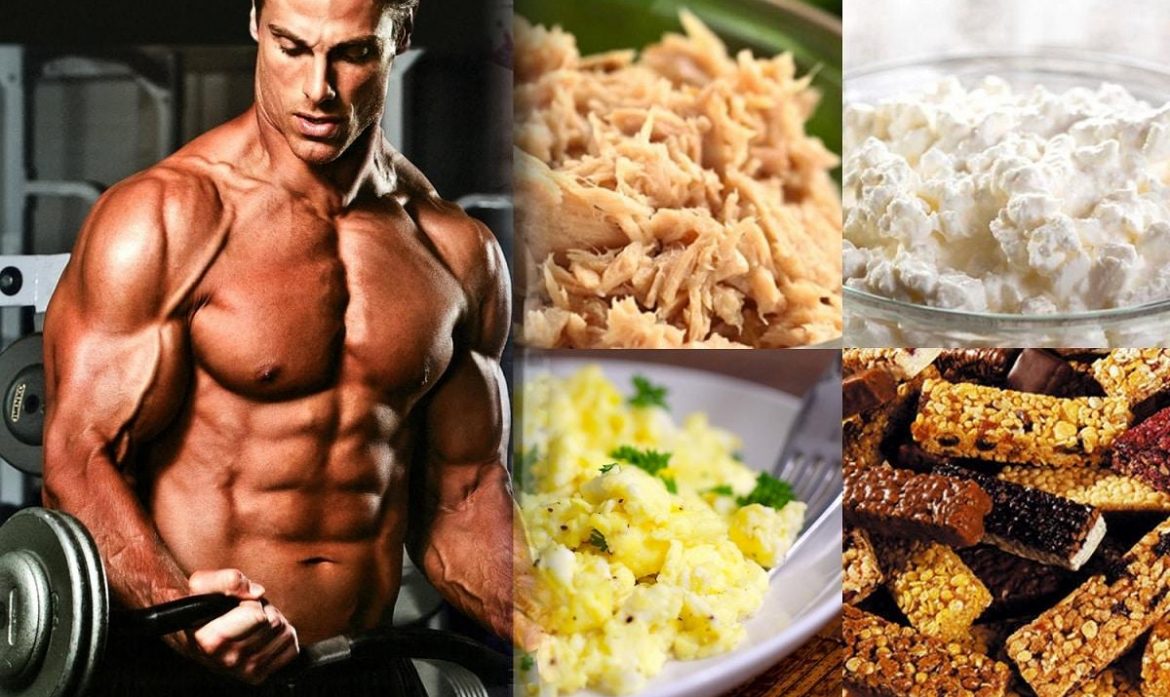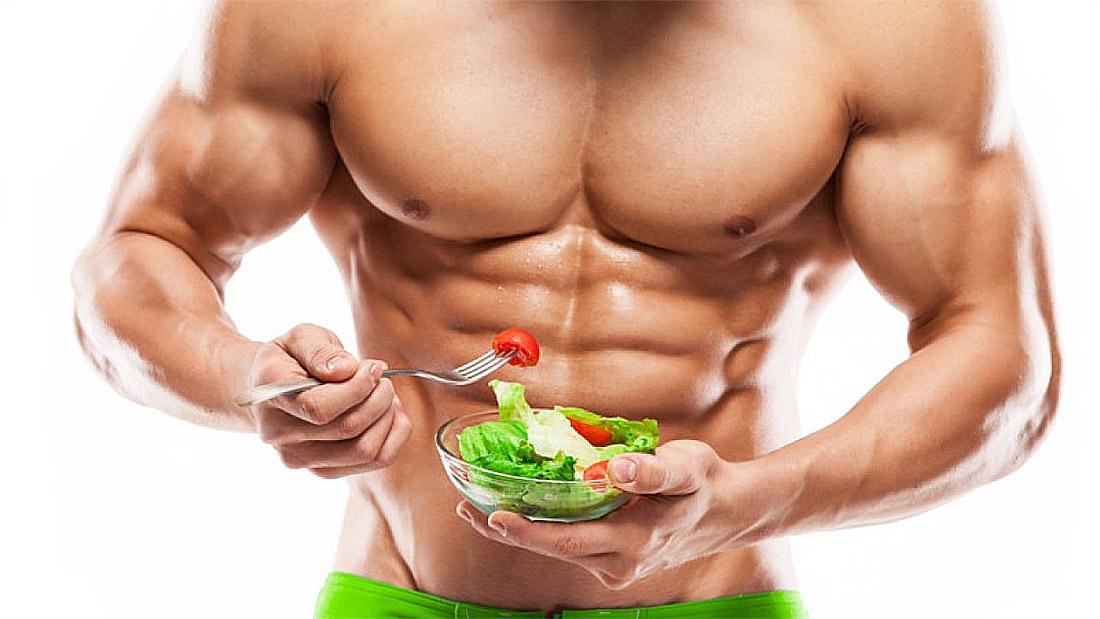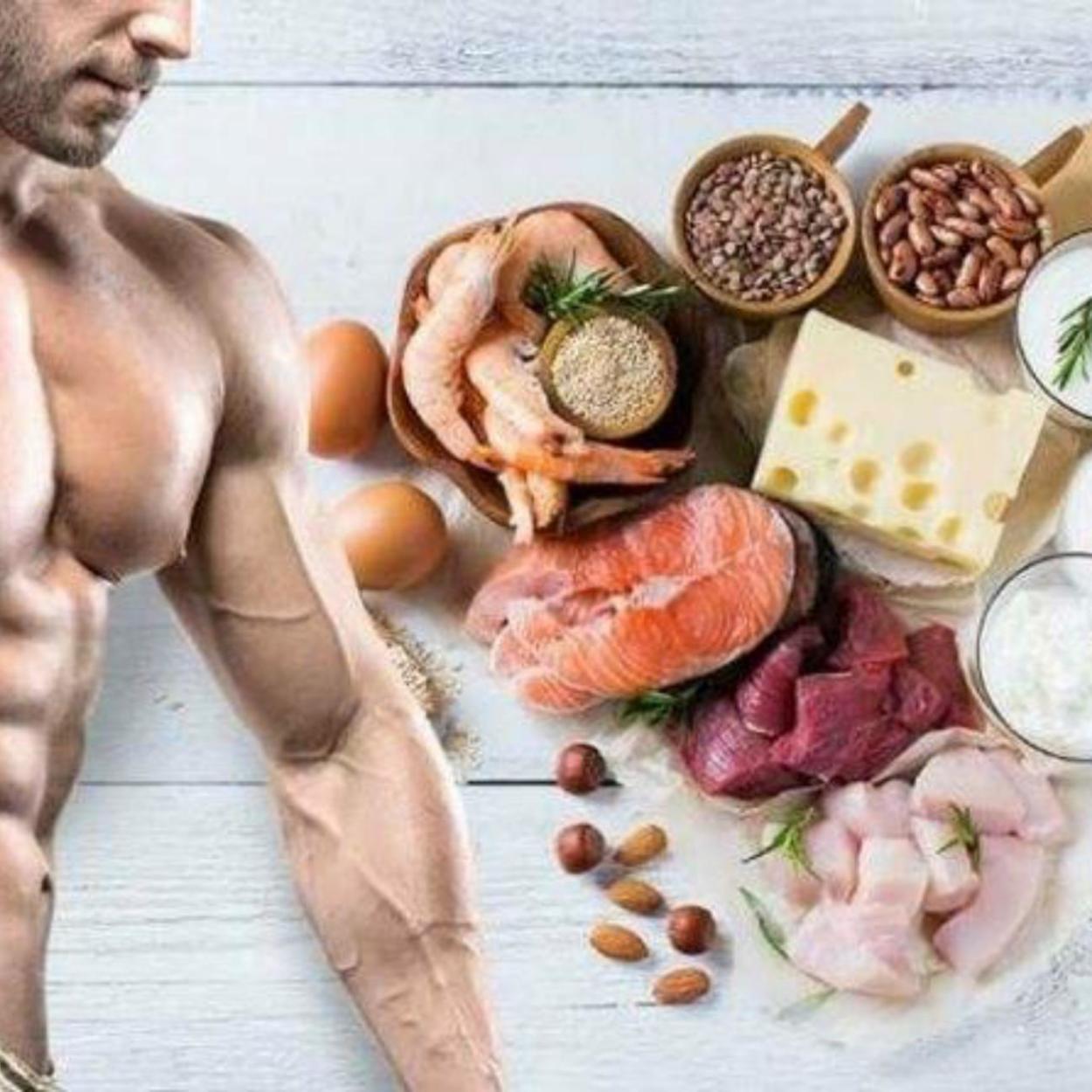
Basic principles of the diet
1. 5-6 meals a day
Recent studies have shown that the anabolic effect of eating lasts about 3-4 hours, despite the fact that a high level of amino acids lasts longer. Therefore, when gaining muscle mass, you need to eat quite often: the optimal number of meals is 5-6 times a day. At this frequency, the digestive system is not overloaded, and small portions of nutrients are constantly entering the bloodstream, which will nourish your muscles throughout the day. If you eat the same amount of food in 3 meals, then the absorbed nutrients will come in excess, so the body will begin to deposit them in the form of fat, from where it is not possible to extract them in a high-calorie diet.
2. High-calorie food
About 70% of the food eaten should be high-calorie, otherwise there is an overload of the digestive system, besides the degree of absorption of nutrients decreases. No one denies the usefulness of fruits and vegetables, but when gaining muscle mass, their mass fraction should not exceed 30%. Fiber, which is contained in them in large quantities, is not digested and stimulates intestinal contraction, so most of the high-calorie food will not have time to digest.
3. Restriction of fats and fast carbohydrates
Try to limit the consumption of foods rich in animals and other saturated fats (fatty meat, lard, margarine, butter, sausages, etc.). For muscle growth and energy production, the body primarily uses carbohydrates, so most of the fat in conditions of an excess of nutrients will be deposited in adipocytes (fat cells).
Avoid the consumption of fast carbohydrates, the most dangerous of them are sweets (confectionery, sweet fruits, etc.), less dangerous are bakery products. Fast carbohydrates are able to be absorbed very quickly from the digestive tract, as a result of which the blood sugar level increases sharply, in response to this, the body converts glucose into fat.
Fast carbohydrates can be consumed after training, when muscles and other organs are able to quickly utilize glucose, besides, the secretion of the anabolic hormone insulin increases, which is of no small importance when gaining muscle mass.

4. Drinking regime
When gaining muscle mass, many metabolic reactions are intensified, which creates the need for more water consumption. The optimal amount of liquid on average is (including water, which is contained in products) — 3-4 liters per day. Do not allow the development of dehydration( dehydration), always drink when you are thirsty.
5. Distribution of portions during the day.
When gaining muscle mass, the volumes of food should be approximately equal, but in the first half of the day (before 16:00) about 70% of all food eaten during the day should be eaten. Although recent studies have shown that the daily distribution of portions plays a secondary role.
Never eat sweet or fatty foods at night. Food before going to bed should be easily digestible and rich in protein, sour-milk products, vegetables (legumes and others), poultry meat, salads, eggs, fish are well suited for this.
Nutrition before training. Be sure to eat before training (2 hours before it starts). Protein dishes and products containing slow carbohydrates are well suited for this: cereals, flour, vegetables, etc. Carbohydrates before training are necessary in order to load the glycogen depots and provide the muscles and brain with energy during training. Amino acids will allow you to start anabolism.
Nutrition after training. The greatest need for nutrients is observed in the near future after training. It is optimal to use a carbohydrate-protein cocktail (gainer) immediately after the end of the training, then a plentiful meal should follow no later than 1-1.5 hours after training. Include foods rich in proteins and slow carbohydrates, you can even eat a small amount of fast carbohydrates (sweet). After the training, the so-called protein-carbohydrate window opens, during this time the body is ready to assimilate a large amount of food, while nutrients are used to restore muscles and replenish energy.
6. Proportions of proteins, fats and carbohydrates (in kcal)
The carbohydrate content is 50-60%
Try to consume only slow carbohydrates.
The protein content is 30-35%
These are the most important nutrients for muscles. Ideally, 50% of proteins are obtained from foods, the rest from sports nutrition. It is recommended to calculate the protein requirement using a calculator based on body weight, physical activity and other factors.
Fat content — 10-20%
Do not limit the amount of fat below 10%, this will cause undesirable changes in the metabolism. Try to consume only vegetable fats. Eat fatty fish without restriction. Fish oil is very useful.
It should be remembered that there is no ideal ratio that would suit absolutely everyone. Therefore, the main task of a novice bodybuilder is to find one that will be effective for you personally. Here we give the average numbers that are suitable for most people, you should start with this, and you can experiment. Interestingly, the ratio of proteins, fats and carbohydrates does not differ much from the recommendations of nutritionists for ordinary people, and this is not surprising, since such proportions are best suited for both an ordinary person and an athlete.

